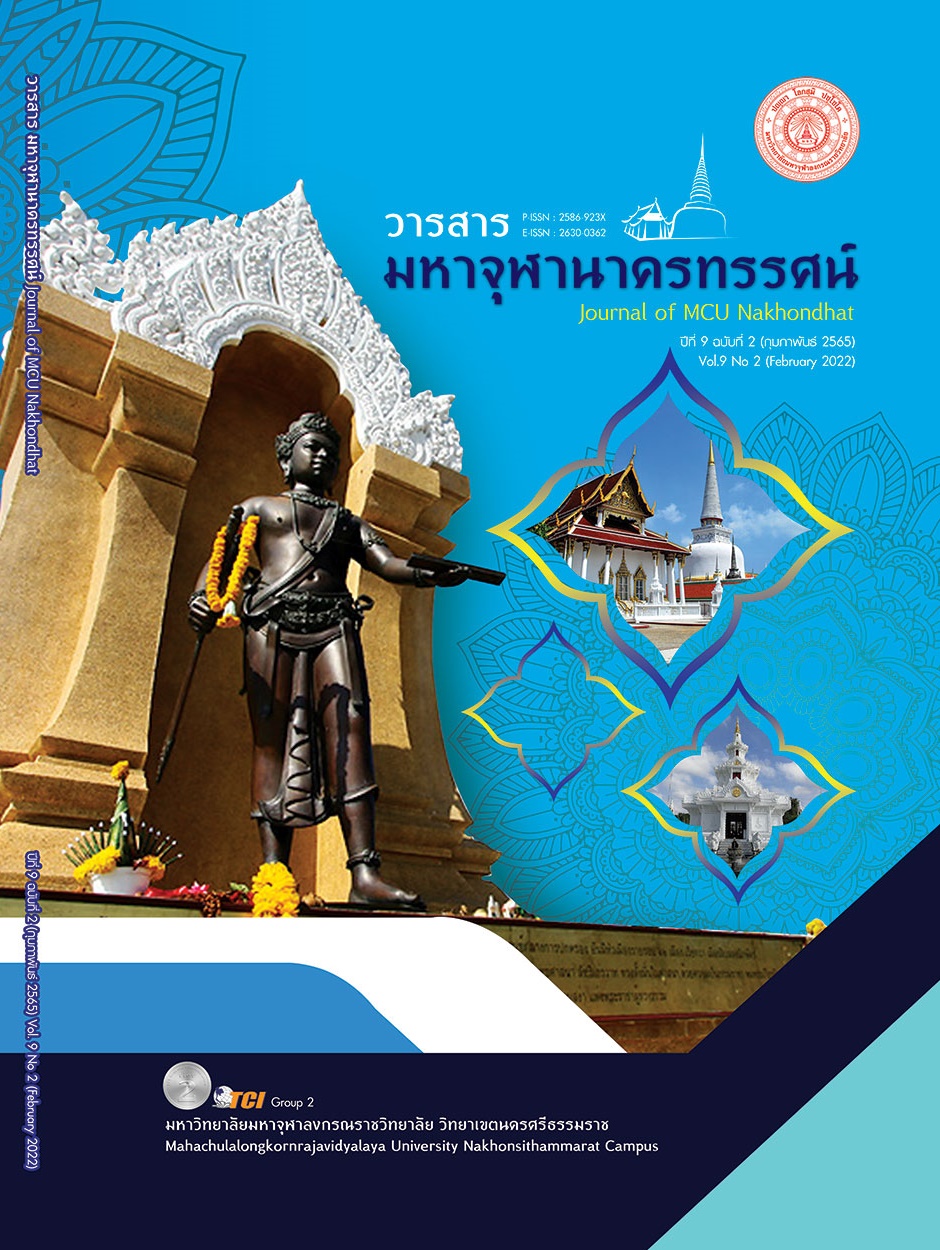THE DEVELOPMENT OF ACTIVITY PACKAGE BY USING BRAIN BASED LEARNING FOR DEVELOPING LIFE SKILLS OF YOUNG CHILDREN
Main Article Content
Abstract
The objectives of this research article were to 1) develop Brain Based Learning activity packages to encourage young children life skill 2) analyze effect of using Brain Based Learning activity packages of young children. This is an experimental research, the sample used in the research was young children boys and girls, with 5-6 years of age, of kindergarten 2/1 and 2/2 in first semester of 2016 academic year of Hang Chat district municipal school, Hang Chat sub-district, Lampang Province. The sample group contained 60 young students. Those groups were selected by using purposive sampling. The instrument used in the study were 32 Brain Based Learning activity packages. The evaluation form was divided into two situations life skills evaluation form, situations: 1) Students were evaluated the accountability skill and interpersonal relationship skill. 2) The students were evaluated critical thinking skill and problem skill. The research followed one group pretest-posttest design and the data were analyzed by using Arithmetic mean and Standard Deviation. The results of study revealed that 1) Brain-based activities package for promoting early childhoods' life skills is appropriate and applicable which was evaluated by 5 experts with an evaluation result between 0.8 -1.0. 2) The early childhood children have life skills before the activity with a mean score of 1.69 and after the activity with a mean score of 1.89, which was higher than before the use of the brain-based activity package. When analyzing each aspect, It was found that after the brain-based activity package of early childhood children has the higher life skills than before in all aspects of the activities, in the following order: 1. Critical thinking 2. Responsibility 3. Building relationships with others and 4. Problem solving.
Article Details

This work is licensed under a Creative Commons Attribution-NonCommercial-NoDerivatives 4.0 International License.
References
กรมส่งเสริมการปกครองท้องถิ่น. (2550). แนวทางการจัดกิจกรรมเตรียมประสบการณ์ศูนย์พัฒนาเด็กเล็ก สังกัดองค์กรท้องถิ่น ตามกรอบหลักสูตรการศึกษาปฐมวัยที่กระทรวงศึกษาธิการกำหนด. กรุงเทพมหานคร: กรมส่งเสริมการปกครองท้องถิ่น.
กุลยา ตันติผลาชีวะ. (2551). รูปแบบการเรียนการสอนปฐมวัยศึกษา. กรุงเทพมหานคร: เบรน-เบส บุ๊ค.
จีระพันธุ์ พูลพัฒน์. (2556). การพัฒนาทักษะชีวิตสำหรับเด็กปฐมวัย. ใน รายงานการวิจัย. จุฬาลงกรณ์มหาวิทยาลัย.
ประไพ ประดิษฐ์สุขถาวร. (2554). สอนลูกให้มีทักษะชีวิต (Life Skill). กรุงเทพมหานคร: ชุมนุมสหกรณ์ การเกษตรแห่งประเทศไทย.
มณี เกษผกา, อุษา คงทอง และสุรางค์ เมรานนท์. (2557). การพัฒนารูปแบบการสอนเพื่อส่งเสริมการเรียนรู้ วิชาสุขภาพผู้บริโภค โดยใช้สมองเป็นฐานของนักศึกษาสถาบันการพลศึกษา. วารสารวิจัย มหาวิทยาลัยสวนดุสิต. 10(1), 149-167.
ยงยุทธ วงศ์ภิรมย์ศานติ์ และ สุวรรณา เรืองกาญจนเศรษฐ์. (2553). ทักษะชีวิต. กรุงเทพมหานคร: ศูนย์สร้างเสริมสุขภาวะวัยรุ่น โรงพยาบาลรามาธิบดี.
วรกิต วัดเข้าหลาม. (2540). ชุดการสอน. ขอนแก่น: คณะศึกษาศาสตร์ มหาวิทยาลัยขอนแก่น.
ศันสนีย์ ฉัตรคุปต์และอุษา ชูชาติ. (2545). ฝึกสมองให้คิดอย่างมีวิจารณญาณ. (พิมพ์ครั้งที่ 2). กรุงเทพมหานคร: วัฒนาพานิช.
สำนักงานคณะกรรมการการประถมศึกษาแห่งชาติ. (2541). ก้าวสู่มาตรฐานการเรียนรู้ทักษะชีวิต. กรุงเทพมหานคร: โรงพิมพ์ครุสภาลาดพร้าว.
สำนักงานคณะกรรมการการศึกษาขั้นพื้นฐาน สำนักวิชาการมาตรฐานการศึกษา. (2541). การพัฒนาทักษะชีวิตในระบบการศึกษาขั้นพื้นฐาน. กรุงเทพมหานคร: สำนักงานคณะกรรมการการศึกษาขั้นพื้นฐาน.
Maxwell, R. (1981). Life After School: A Social Skills Curriculum. New York: Pregamon.


